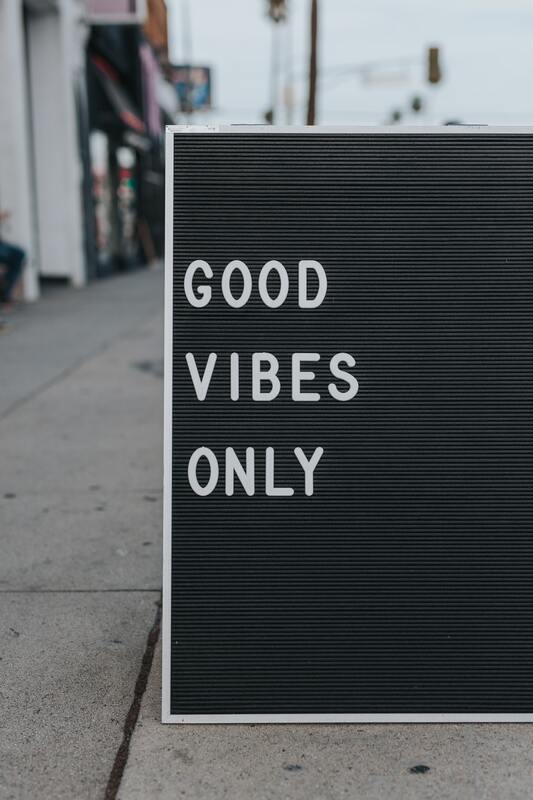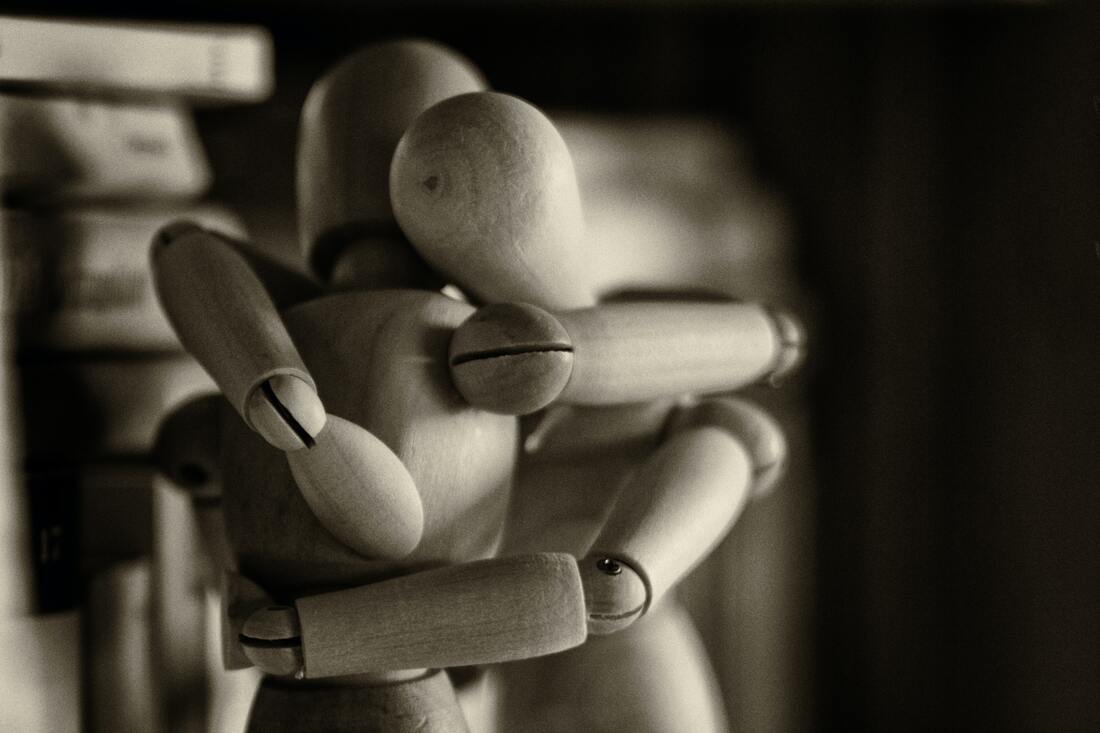|
Boundaries are an important aspect of our lives that are often overlooked. They define the limits of what we are willing to accept, both in terms of how we treat ourselves and how others treat us. Without boundaries, we may find ourselves feeling overwhelmed, stressed, or taken advantage of. In this blog post, we will explore the concept of boundaries and their importance in our lives.
What are Boundaries? Boundaries are limits we set for ourselves and for others. They define what is acceptable and what is not, and they help us to create a sense of safety and security in our lives. Boundaries can be physical, emotional, mental, or even spiritual. They are unique to each individual and may change depending on the situation. Types of Boundaries:
Why Boundaries are so important:
Tips for setting boundaries:
Boundaries are an essential part of our lives. They help us to create a sense of safety and security, prioritize our own well-being, and maintain healthy relationships. Setting and maintaining boundaries can be challenging, but it is an important aspect of self-care and personal growth. By understanding the importance of boundaries and practicing healthy boundary-setting habits, you can create a more fulfilling and balanced life. Human beings are social creatures, and forming connections with others is essential for our well-being. Building friendships can be a rewarding experience, but it can also be challenging, especially for those who are shy or introverted. In this blog, we will explore some tips on how to make connections with other people and build meaningful friendships.
Making connections with others and building friendships requires effort, but it's an essential part of our lives. By showing interest in others, being open and approachable, joining clubs or groups, participating in social activities, being reliable and supportive, and embracing vulnerability, you can form meaningful connections with others and build long-lasting friendships. I hear often from people who work full time that they cannot wait for the weekends. However, once the weekends come along, they can end up feeling just as stressed and busy as the weekdays, leaving many feeling tired and ‘behind’ come Monday morning. Because our western culture is so work-oriented and work-focused, many can feel that the weekends are their only time to see friends, run errands, have family time, and catch up on all they did not get done during the week. What a tall order for a two-day weekend! I want to talk about how to go into the weekend with intention, and how to have a weekend that feels both relaxing and filling.
The number one problem I see people creating for their weekends is overbooking or over-scheduling themselves. This can be all too common because of the shared feeling that the weekend is the only time to do it all- thus leading to many different events, social obligations or chores booked for both Saturday and Sunday. This overbooking can lead to the feeling that there is just as much of a schedule to follow on the weekend as there is during the week, not leaving space for spontaneity, calm, flexibility or time without obligations to fulfill. The first step to having a weekend that feels good is to be aware of what you have scheduled and whether or not that feels doable for you. Everyone is different, and some may love having a jam-packed social schedule of things to do, while others prefer only one thing scheduled so as not to feel overwhelmed. Think about what works best for you and then take a look at your weekend. Ask yourself the following: Does it feel overbooked? Is it overwhelming to think about all the things I have planned this weekend? Is there any time to lay down, relax, hang out or meditate? How do I imagine I may feel come Monday with this schedule? The next step to having a weekend that feels good is to consciously create time for self-care and/or self-reflection. This can look like a whole night or day with no plans, or it could even be an hour or two in the morning or before bed on one weekend day. So often we are go-go and do not take the time to pause, breath, and check in with how we are doing or what we need. Our nervous system needs a break from stress, to-dos, and the constant chatter in our head. Self-care can look different for everyone. Here are some examples of what self-care on the weekends could look like: drinking coffee with no distractions, creating time for a ten-minute mediation, a mindful walk with no phone, a long shower, a manicure, picking up that book you’ve been wanting to read, cooking a healthy meal for yourself or your family. There are so many ways we can tend to ourselves and check in, and making sure to do at least 1-2 self-care acts a weekend is crucial to feeling revived and energized come Monday. Lastly, distinguish between what we need to do, and what we want to do. There may be a lot you want to get done or accomplished during the weekend, but are there things that can wait? When we don’t take the time to ask ourselves what can wait and what can't, it can often feel like we have to get everything done over the weekend- contributing to feelings of anxiety, stress, pressure and limited time. In order to alleviate these feelings, look at the tasks you put down for the weekend and take time after each one to ask- “does this need to get done this weekend, or can it wait?” The act of doing this is intentional and allows you to be more aware and mindful of how you want to spend your time. Time to feel relaxed, time without plans, and time to take care of ourselves is all crucial to mental wellbeing. The weekend, or any time off work, can be the chance to have some space from the rigidity and hectic nature many of us experience during the workdays. Be intentional about the weekends, and make sure that you are taking the time to think about what would make you feel filled up, energized and joyful after the weekend. Valentine’s Day can be a hard day if you are single, or recently single, as it is recognized in Western culture as the celebration of love between couples. We are exposed to the marketing and ads around Valentine’s Day sometimes months before- which can make it overwhelming and upsetting if you are also navigating the loss of a relationship and also seeing candy, hearts and commercials all over. But I want to share that Valentine’s Day is not just for couples. It originated as a day to celebrate love, and this can mean love for friends, family, and also love for ourselves. Part of being able to successfully celebrate Valentine’s Day while single is to reframe what it has meant. It can be a day about love- not a day about love with a partner.
With this new framework in mind, here are some ways that you can celebrate this day of love in a way that feels fulfilling. 1. Buy Valentine’s Day cards and send them to your three closest friends. You don’t have to feel intimidated to walk down the card aisle or feel like you can’t buy something Valentine’s Day related just because you are not with a romantic partner. Pick out a few cards you love and write a note to your closest friends. Pouring time and energy into our friendships makes them feel closer and more fulfilling. This act will remind you of the close connections you have and will foster that connection. 2. Engage in self-love throughout the day. What is self-love anyways? We hear about it all the time, but what can it look like in practice? Self-love can look like really being gentle and tuning into your own needs. With this in mind, spend the day getting in touch with what you need. Self-love may mean shutting your phone off, it may mean calling a friend. It could look like being aware of harsh self-talk and choosing kindness with yourself. Spend the day engaged and aware of attuning to your own needs. 3. Spend the night cooking or ordering food with a friend. It may feel important to stay connected on Valentine’s Day. Maybe you have a friend or a family member who isn’t celebrating with a partner or who doesn’t currently have a romantic partner. Call that person and plan a night where you either cook something, or order food in. Both put your phones away and focus on having fun with one another, being present, and connecting. Maybe you watch a funny movie or play a board game or go on a long walk. Whatever it is, be present for it and enjoy it! Valentine’s Day is not just for couples. You can enjoy the day if you are single. If you find yourself being triggered by certain posts, TV shows, movies or social media- unplug from them! Give yourself permission to take a step back from the things that trigger you and re-focus on what you are wanting and needing in that moment. Choose to see Valentine’s Day as a day to show love to yourself and the people in your life, not just a day for partners. Be aware of the shift that this frame of thinking may have for you! Closure is such a universal part of every breakup. Most people find comfort in understanding and making sense of a loss. But what if you weren’t in control of your breakup or even agree with it? It makes healing and moving on even more difficult than it has to be. Today, we’d like to talk about an element of closure that can help you gain a sense of control because it is something you’re completely in charge of: Acceptance. In this sense, acceptance does not mean you approve or agree with what’s happened, it simply means you’re going to stop fighting the reality of what is. In acceptance, we surrender to the facts even if we do not like them. We stop engaging in what if’s, we stop thoughts about what could have been and replace them with that is.
Here are some examples of phrases that emphasize acceptance:
I understand that this exercise might feel a bit cold to some people. You might be wondering, what if I don’t want to let go and accept? It’s not that we don’t hold compassion for the grief that comes with breakups, but in acceptance we focus on what is within our control and work towards healing. Acceptance gives us a break from being stuck in difficult emotions and frees us from exhausting mental work that comes with resisting the facts. When we whole-heartedly practice acceptance, we give ourselves the gift of closure even if we have felt completely powerless in our breakup process. Closure is overrated. Yes- I said it! We hear so much talk about closure, what exactly it means and how to get it as quickly as possible. Closure is often viewed as something that we have to wait for someone else to give us. With this traditional definition of closure, it feels like closure is not within our power, that it is not certain we can get it, and feels like it could take forever. I want to move away from the idea that closure is something that we get from our ex or someone else, and empower our readers to feel that they can truly create their own closure if they wish to. Below are 3 ways to begin the road to creating your own closure after a breakup.
1. Take good care of yourself We do not need to wait for someone else’s permission to take care of ourselves. Attending to our own needs and tuning into what is good for our mind, body, and soul is an important part of healing and creating closure. Often when we are sad after a breakup, it can feel harder to do things that feel good, or perhaps we are used to leaning on our ex to feel better. It is now crucial that we become aware of and willing to meet our own needs. Taking care of ourselves can look a few different ways. It could be a social media break, eating healthy and drinking lots of water, moving our bodies more, not watching TV or listening to music that is triggering. All of these things are things that we have full agency over and all put us on the path to bettering our mental and emotional wellbeing. 2. Challenge negative beliefs and thoughts If we listen closely, we may become aware of all the chatter that goes on in our brains post-breakup. We may spend time wondering what our ex is doing, assuming what they are thinking, running through what we could have done differently, and beating ourselves up for what we did or did not do. Its crucial to not let these thoughts take on a life of their own. An important part of closure is challenging the hurtful thoughts and beliefs we may deduce from the end of a relationship. Often we think that talking to our ex or hearing from them will allow us to get the information we need, however so much of the information swirling are thoughts that we make up, and are ones that our ex cannot actually take away for us. For example, if we were broken up with and we see a photo of our ex with someone else, we may assume things like “they never loved me”, “they are over me”, “I'm not good enough”, etc. We think that hearing from our ex may clear up or confirm these thoughts. But so often, we do not get what we truly want or need from our ex. We are the ones that have the power to change our thoughts and to begin feeling differently, and by doing that we begin to create the closure we so often desire. 3. Decide what moving forward looks like for you Moving forward does not have to mean dating again or being ready to date if that’s not what you want. Moving on can mean and look different for everyone. Moving on can mean re-prioritizing friendships, spending more time on your hobbies, getting into an interest you have been putting off, traveling more, etc. If we get clear on what moving on means for us, it can make it much more tangible and empowering. If moving on means ‘feeling better’ we can write down the things that make us feel good and do more of those. Breaking up these bigger phrases like ‘moving on’ and ‘closure’ into more concrete ideas can feel like a relief and something that we can accomplish, leading to more confidence and higher self-esteem. Take a moment and get clear on what ‘moving on’ means for you. Write it down and begin thinking about what steps can help you get there! It is so important for us to understand that we have the power to shift our energy and brain chemistry! We have four main brain chemicals that are responsible for our happiness and our energy levels. They can be referred to as our ‘feel-good’ hormones and they are: dopamine, serotonin, oxytocin, and endorphins. Below are descriptions of each and ways we can naturally create more of them in our brain. When we are going through hard times (a breakup being a big one!) it is especially important to get intentional about creating more feel-good chemicals in our brain.
Dopamine: activated by pleasure and reward Ways to activate: Listen to your favorite song, dance, set a small goal (even setting an alarm and going on a walk) and reach it! Serotonin: activated by mood, behavior, appetite, sleep Ways to activate: Sit in the sun, create a gratitude list, walk outside, take a deep breath Oxytocin: Activated by physical touch Ways to activate: Hug a friend or shake someone’s hand, if you can’t hug a friend- hug yourself! Studies show giving ourself a hug or rubbing our own arm also activates oxytocin Endorphins: activated by working out, increasing heart rate Ways to activate: Exercise, run, belly laugh! This 2020 holiday season may feel very different for many people than it has in the past. Given the stress of covid and the effect this has had on people being able to see family and friends, it is important to find ways to still feel loved and connected this holiday season. If you are feeling the stress this year, on top of going through a breakup, then making sure you are feeling plugged in to the ones you love is even more crucial! Below are some ways to celebrate and feel connected despite the stress and sadness this year may be bringing.
1. Write holiday cards to your loved ones Many people are not able to see loved ones this year or may not be able to see all their loved ones in the setting they are used to. With ‘Zoom fatigue’ feeling very real during covid, shifting to writing a card for loved ones to receive can be a way to still show gratitude and connect, without having to get online. Writing someone a handmade card can boost those feel-good hormones and allows you to think about your loved ones and all the things you enjoy about them! The process of putting them in the mail and having the people in your life receive them can also boost your mood. 2. Continue with traditions even if you can’t be with loved ones Even if you may not be with family or friends this year, still celebrate! If you usually make a certain dessert with your family- make it anyways. If you typically all watch a certain movie or show this time of year- watch it by yourself, or plan a call and watch together. Still engaging in the things that bring joy, even though it may not look the same, can allow you to feel connected to loved ones despite not physically being with them. You can even still create new traditions and celebrations this year! Use this as an opportunity to get creative. 3. Carve out time to connect without distractions Connecting over a screen can feel different partly because it is easier to get distracted. These distractions can lead us to not be as present or not be fully paying attention to what the person on the other line is saying. During this season, try carving out time that is distraction-free. Put a call on the calendar for a certain day and time, and set aside any ‘to-dos’ or other distractions that can come up. Putting time to connect on the calendar makes it more likely that we will not only follow through, but will be more intentional and present with the time spent speaking with our loved ones. 4. Lean into gift giving to show affection We all have different love languages and ways of receiving affection. For many people, quality time and touch may be the ways we do this. If you are not able to see loved ones, then quality time and touch may feel hard to give this time of year. If you cannot be with the people you care about this holiday season, leaning into gift giving as a way to show affection can help you feel connected, even at a distance. You do not have to break the bank to give a gift. A handwritten card, $5 Starbucks card or even homemade cookies can all be thoughtful gifts that make the people in your life feel loved and cared for by you. If you are typically not a gift giver, try leaning into getting creative this year with gifts and see if it helps you feel connected to your friends and family! There are certain things that happen in our lives that cause us to reflect and look back on our words and actions. Breakups are events that can bring upon this kind of deeper look at and reflection of ourselves and our actions. It can be all too easy to get caught up in the rumination of what we feel we did wrong, did not do well enough, or wish we would have done/said more of.
Although it can be helpful to honestly look at where we can improve and do better, it can be unhelpful to stay stuck in a cycle of regret and anxiety over wishing we could go back and do things differently. If you are going through a breakup and notice yourself going back to the “could have, should have, would haves”, then it may be a sign you need to reframe the past in order to move forward in a new, more productive way. The difference between mistakes and regrets is that we usually do not learn from regrets. We often do not have gratitude for things that we regret, and this feeling only brings up more painful emotions, such as shame, guilt, stress and distress. Regret can keep us stuck in shame and it is hard to learn, grow and evolve from a place of shame and self-hatred. Mistakes on the other hand often bring us closer to our ultimate goals, are things we can usually turn into tools for growth, and are markers that we can look back on, make meaning of, and be thankful for. So how do we take our mistakes in our last relationship and turn them into lessons? First it is important to change the words we use when we talk and think about the past. If we find ourselves using ‘should’ a lot- that is typically a sign we are having trouble letting go and accepting that we cannot change what happened in the past. Instead of “I should have been more affectionate to my partner” we can instead say “I’m becoming aware of the ways in which I withheld affection”. Kindly observing our actions keeps us out of toxic and judgmental self-talk and is what ultimately helps us stay aware of what we want to change for next time. We can then go on to add what we want to do more of in the future. For example, “In my next relationship, I can be more aware of this pattern of withholding affection and open myself up to giving and receiving more affection”. We can then remind ourselves of this wish and commit to it intentionally- “ I commit to begin staying aware of this pattern in both my romantic relationships and friendships moving forward”. In order to feel like we can use our mistakes as propellers to be better, we need to be willing to forgive the parts of us that were not able to show up in the ways we may have wished. If we often said hurtful things or lashed out at our ex-partner, we need to be willing to more deeply understand why we might have been doing these things instead of simply beating ourselves up for the words or actions. Compassion and understanding are the precursors needed to forgive, and we can only understand if we are willing to be more kind with the way we are looking at ourselves. If we don’t gain insight into why we keep acting a certain way, we can be doomed to recreate the same patterns over and over again until we gain more awareness. Similar to the ways in which it makes it easier to forgive others when we learn more about their experience, their past and have a better understanding of the context of a given situation, the same is true for ourselves. These things do not become excuses, but simply give us a different lens in which to view ourselves and others in a more kind and loving way. Following a relationship ending, it is typical to go through a roller coaster of emotions day to day. Below are some of the most common feelings that can be experienced after a breakup, as well as ways to cope and manage these feelings when they arise.
Anxiety At the core of anxiety is a sense of uncertainty that feels completely overwhelming. Breakups can bring up uncertainty in a big way. It is not uncommon to wonder if we will possibly reconnect with an ex, wonder what our ex is doing, feel unsure as to what is going on for them or what they are feeling. The list can go on and feel exhausting to ruminate over. When we find ourselves in an anxious train of thought, continuing to wonder about things we do not or cannot know the answers to, it is important to hop off the train and remind ourselves that we are dealing with a lack of certainty. In these moments, it is helpful to focus on something that is in our control. We can control who we reach out to, we can limit our social media use, we can control how we take care of ourselves. When the storm of anxiety is brewing, focus on doing something that we have control over in order to help combat the lack of certainty that is being experienced. Loss & Grief Its important to remember that breakups are a form of loss. Outside of the loss of the person in our life, there can also be a loss of friends, loss of plans for the future, loss of expectations about where the relationship was going. Whenever there is loss, there is a navigation of grief that needs to happen. When we start to feel grief, it is crucial to be compassionate with ourselves. It may take time to come to terms with the different layers of loss associated with a breakup, and while this healing is taking place, we can be kind in the language we use with ourselves. We may even feel a pull to honor the relationship in some way. If this feels like something you want to do, sit down and list out a few reasons you are grateful for the relationship. Think about what you may have learned from your ex-partner coming into your life that you may not have learned had you not been in a relationship with them. Seeing the ways in which the relationship may have given back to us can help us cope with the heaviness of the loss one may be experiencing. Loneliness One of the most common post breakup feelings is the feeling of loneliness. The void of no longer having someone to call, text, do things with and share with can feel absolutely devastating. If this is the case for you, now is the time to plug back into other relationships that give back to you. There may even be relationships that you have been neglecting while dating your ex-partner that you could reignite. When lonely, it can feel easy to isolate and go inside ourselves. Although this can be what feels most comfortable and easy, these are the moments when it is most important to connect. Join that intramural team you never signed up for. Go out to eat with a friend. Ask them for a hug- we need touch and connection, especially when we are struggling with hard emotions. Even going to sit and read in a coffee shop instead of in your room alone can lead to a shift in energy and mood. We cannot go through hard experiences alone, so finding and leaning on the people in our lives is crucial following a breakup. |










 RSS Feed
RSS Feed